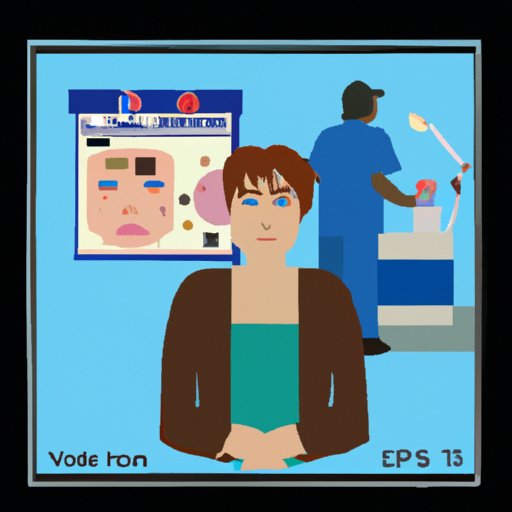
Introduction
Dark spots, also known as age spots, can cause frustration and self-consciousness. These spots are the result of an overproduction of melanin, the pigment that gives skin its color. As we age, our skin is more susceptible to UV damage, which can cause dark spots. Hormonal changes and genetics can also contribute to the development of these spots. Fortunately, there are several options for treating and preventing dark spots. This article is intended to provide information to those looking to remove dark spots on their face.
Natural Remedies
Many natural ingredients can help to fade dark spots. Lemon juice, honey, aloe vera, and turmeric are all effective natural treatments. Lemon juice is a natural bleaching agent that can help to lighten dark spots when applied topically. Honey can help to soothe skin and reduce inflammation. Aloe vera has healing properties that can help to reduce scarring and dark spots. Turmeric has anti-inflammatory properties that can help to prevent new dark spots from forming.
When using natural remedies, it’s important to remember that they may not be as effective as chemical treatments. Additionally, some natural remedies, like lemon juice, can make skin more sensitive to UV radiation, so sunscreen should be worn when using these treatments.
Over-the-Counter Creams or Serums
OTC creams or serums containing hydroquinone, alpha hydroxy acids (AHAs), and retinoids can help to reduce the appearance of dark spots. Hydroquinone is a skin lightening agent that can reduce the amount of melanin in the skin. AHAs, like glycolic acid, can help to exfoliate the skin and reduce the appearance of dark spots. Retinoids can help to increase cell turnover and reduce the appearance of dark spots.
When choosing an OTC product, look for one that contains at least 2% hydroquinone and a pH of 3.5 or lower. It’s important to test these products on a small area of skin first, as they can cause irritation for some people.
Chemical Peels
Chemical peels involve the application of a chemical solution to the skin, which causes the outer layer to peel off. This reveals underlying, fresh skin that is typically free from dark spots. There are three main types of chemical peels: superficial, medium, and deep. Superficial peels are the mildest and are used to treat minor discoloration. Medium peels can be used to treat more severe dark spots. Deep peels are the most intense and are typically used to treat more serious skin concerns, like acne scarring.
Chemical peels should only be done by a licensed professional, as they can cause skin damage. It’s important to follow all pre- and post-treatment instructions provided by the dermatologist or aesthetician.
Laser Treatment
Laser treatment involves the use of lasers to target and destroy melanin in the skin. This can be an effective way to reduce the appearance of dark spots. Different types of lasers can be used, depending on the severity of the dark spots.
Laser treatment is typically more expensive than other treatment options. It can also be painful and require multiple sessions. There is a risk of skin damage with laser treatment, so it’s important to choose a licensed professional with experience using lasers for dark spot removal.
Diet and Lifestyle Changes
A poor diet, inadequate hydration, and sun exposure can all contribute to the development of dark spots. Consuming a diet rich in antioxidants and vitamins can help to prevent dark spots from forming. Staying hydrated can help to keep skin healthy and reduce the appearance of dark spots. Wearing sunscreen with an SPF of at least 30 can help to prevent sun damage that can cause dark spots.
Additionally, it’s important to avoid smoking, which can contribute to the development of dark spots and other skin issues.
Consultation with a Dermatologist
If dark spots persist despite attempts at treatment, it may be time to consult a dermatologist. A dermatologist can recommend personalized treatment options, like prescription hydroquinone creams or professional chemical peels. They can also provide guidance on preventing future dark spots. When looking for a dermatologist, consider seeking recommendations from friends or looking on the American Academy of Dermatology’s website.
Conclusion
Dark spots can be a frustrating problem, but there are several options for reducing their appearance. Natural remedies, like lemon juice and aloe vera, can be effective for mild discoloration. OTC creams or serums with hydroquinone, AHAs, or retinoids can help to lighten more severe dark spots. Chemical peels and laser treatments can be effective, but should be done with caution and by a licensed professional. Lifestyle changes, like wearing sunscreen and avoiding smoking, can also help to prevent future dark spots. Consulting with a dermatologist can provide additional personalized treatment options. By following these tips, readers can reduce the appearance of dark spots and feel more confident in their skin.





